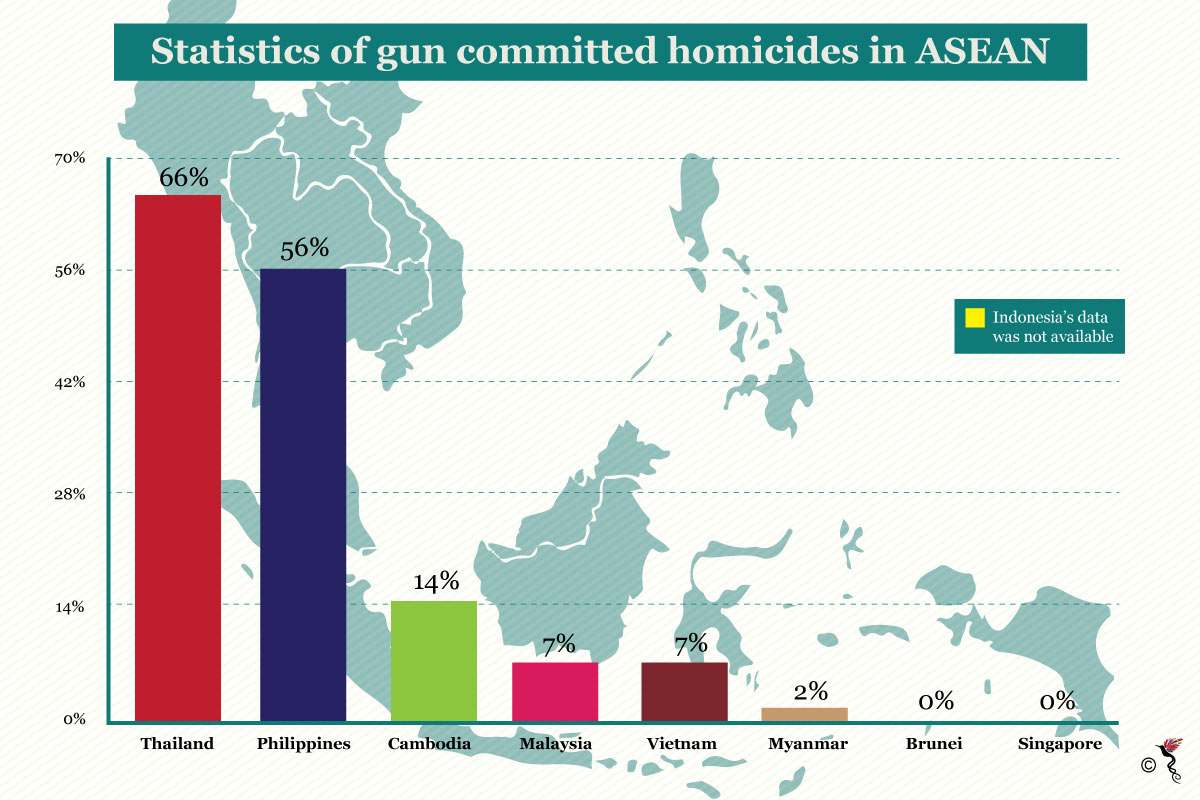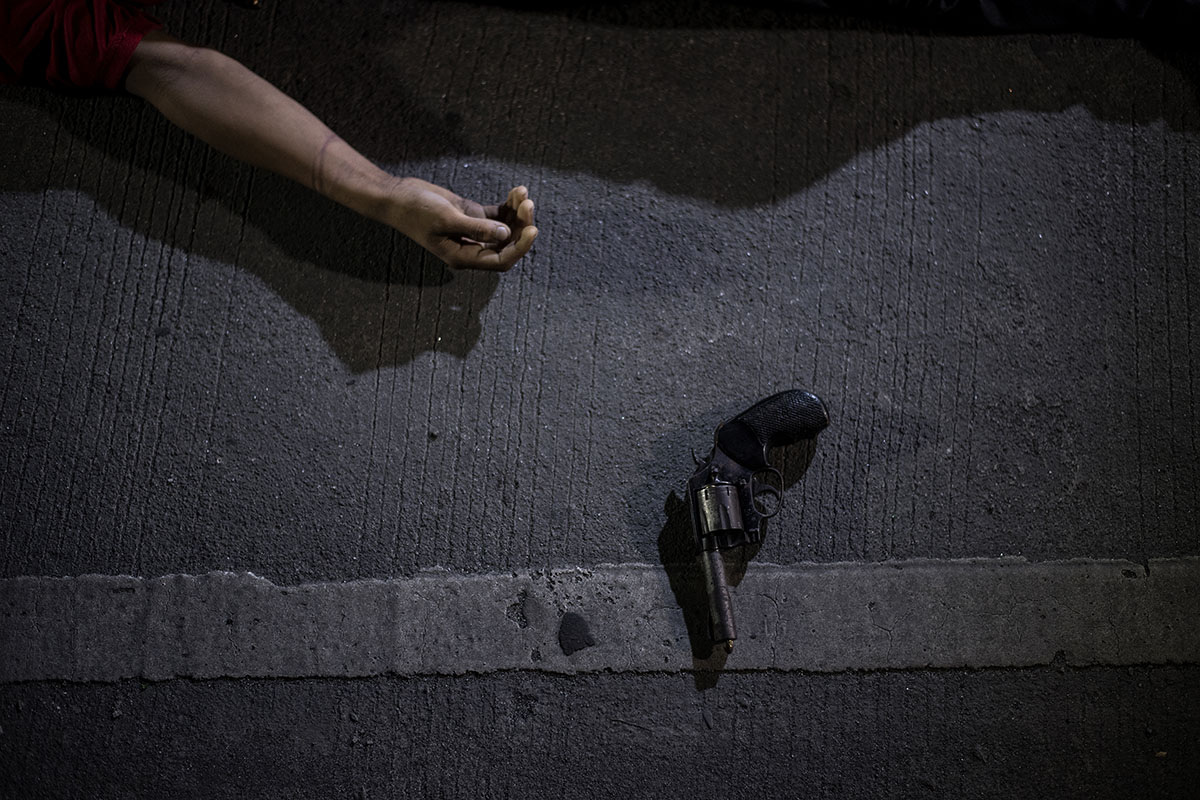“A gun didn’t kill those people. Didn’t kill my friends. A gun stopped him… Not a cop gun. A civilian,” Robert Kunz, friend of several victims of the Sutherland Springs massacre in Texas, said to AFP.
His statement was intended to protest the pro gun movement in the US which has responded meekly to the latest massacre.
Back in Southeast Asia, gun-related violence and deaths are very much a scary reality. ASEAN member states have high numbers of gun-related deaths and individual countries have lax gun control laws. According to the University of Washington, Thailand lays claim for the highest rate of gun-related deaths amongst all Southeast Asian nations.

Statistics of gun committed homicide in ASEAN from 2010-2012.
There are approximately six million licensed guns in Thailand not including illiegal firearms – which if included would push the number to close to 10 million. According to GunPolicy, a website affiliated to the University of Sydney, there are still high numbers of firearm and ammunition smuggling into Thailand despite government regulations in place. Moreover, the lack of knowledge with regards to firearm usage amongst gun owners is another reason for the prevailing gun crimes in the country.
The Philippines also faces increased numbers in firearm-related deaths, and since the election of President Rodrigo Duterte, these numbers have been increasing. The total number of registered and unregistered firearms amount to 3.9 million. Of that number, between 160,760 and 610,000 are illicit firearms. The Philippines does not have an open gun culture, despite Duterte's controversial "War on Drugs" policy.
"If he fights, and he fights to the death, you can kill him,” he once said to CNN in reference to vigilante killings of drug dealers and pushers.
The extensive guns for sale in the Philippines was an important catalyst of Marawi Siege. The May 25 Marawi uprising was fought between the security forces of the Philippine Government and militants associated with the Islamic State of Iraq and the Levant (ISIL), the Maute and Abu Sayyaf Salafi jihadist groups.
Mindanao in Marawi, was an easy target in the Philippines due to their porous borders and huge number of available guns, explosives and ammunitions available on the black market. The lacklustre implementation of laws to regulate firearms helped the black market gun business to continue to thrive – allowing for acts of terror like the siege to take place.
According to a study by the University of Alabama, the Philippines was ranked the second highest country to face the most mass shootings between 1966 – 2012, with 18 mass shootings. Despite being heavily outweighed by the United States at the highest rank with 90 mass shootings, the Philippines is the only ASEAN nation found in the study.

The body of an alleged drug dealer killed during a police anti-drug operation is seen on the ground in Manila on August 18, 2017. (AFP Photo/Noel Celis)
The gun culture in the Philippines and Thailand are completely opposite to those found in both Brunei and Singapore. Both these Southeast Asian nations claim to produce the least amount of firearm related homicides, and have the lowest crime rate across the ASEAN region. Singapore whose crime rate fell down 2.6 percent in 2016, boasts one of the lowest crime rates globally. Their firearm allowance is strictly controlled, and if any guns are illicitly found the punishment is severe.
In Brunei, firearms are banned completely and any transportation or possession of any firearms, will also result in severe punishment. The remaining ASEAN nations - Cambodia, Vietnam, Myanmar and Malaysia are all on moderate to low ranking in regards to gun-related homicide. The gun-related incidents faced by these nations are either isolated incidents or events directly related to isolated terror attacks.
Indonesia, on the other hand, adopts very stringent laws to regulate and govern gun usage. Gun licenses are only issued to citizens employed in a profession that requires them to use firearms. The gun license also expire every five years. However, the irony lies in that fact that although Indonesia has stringent gun laws, the country has one of the highest rates of gun smuggling within ASEAN.
Recommended stories: